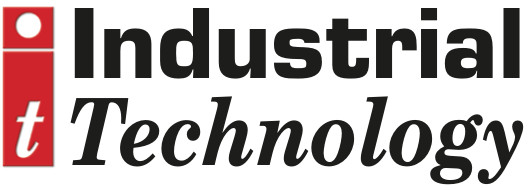
Posted to News on 22nd Aug 2023, 12:20
Three solutions to propel circularity in the manufacturing industry

As a cornerstone of economic progress, the manufacturing industry is facing the challenge of transitioning towards more circular practices in the journey towards net zero and a greener future. Neil Matthews, managing director at MSP, outlines three dynamic solutions.
The ongoing shift towards a circular economy is challenging manufacturers to break away from the traditional linear economy model – which will be imperative, not only to minimise the environmental impact, but to also enable manufacturers to adopt resource-efficient practices.
Recognising the need for circularity to help usher in a new era of sustainability, MSP – which claims to be the world’s first ‘carbon literate’ spring supplier – is outlining three solutions to propel circularity across the industry.
Neil Matthews, managing director at MSP, said: “Already, the role and importance of sustainability within businesses across the sector has grown exponentially to meet the planned carbon targets, with increased investment and proactivity amongst leaders and employees.
“Now, transitioning to a circular economy will be an important next step to meet the sustainability targets. The path forward will necessitate delving into crucial research areas and embracing active solutions, such as digitalisation and balance across the supply chain, introducing recycle and remake principles, and fostering eco-innovation.
“This will help to create a more sustainable and resource-efficient manufacturing landscape.”
Where previously linear economies followed a ‘take-make-dispose’ approach, manufacturers now need to be looking at how to make ‘reduce, reuse, and recycle’ principles a fundamental part of the process.
This comes as the current economy reportedly consumes 100 billion tonnes of materials a year, wasting over 90% of all materials extracted. Yet, it is reported that a shift to an industrial circular economy will have the potential to generate $2 trillion by the year 2030 alone.
Neil continued: “Manufacturers have the power to redesign processes and outputs, and a move to circularity not only benefits the environment, but it also can be a strategically beneficial business move.
“By making a conscious shift, manufacturers can position themselves as forward-thinking industry leaders, mitigating linear risks like price volatility and resource scarcity, and aligning profitability with environmental responsibility.”
To make the shift towards circularity, MSP recommends manufacturers explore the following solutions:
Digitalisation and balance – Fundamentally, a circular economy strives to minimise waste throughout the process. Where traditional processes rely on projections and can lead to overestimation and waste, digitalisation can help to balance supply and demand.
Neil advised: “By investing in digital technologies, manufacturers can use a range of digital tools and data to optimise and manage processes. It can also give leaders precise visibility over the businesses’ energy output and waste management, providing detailed insights which can streamline operational decisions.”
Already, data shows that almost a quarter of manufacturers have invested in digital technologies, while a further 23% plan to do so. Of those who have adopted digital technologies, 62% have reported significant energy cost savings,
Recycle to remake – Implementing strategies such as reusing material products, remanufacturing, and recycling can significantly reduce waste and convert waste into reusable resources, leading to increased profits. Integrating renewable sources into the production process can also effectively diminish reliance on non-renewable resources and drastically reduce the environmental impact.
Neil continued: “Manufacturers need to maintain and recapture value from existing manufactured goods, using the key principles of ‘Reduce, Recycle, and Reuse’ to optimise resources and reduce consumption of scarce natural resources.”
Foster eco-innovation – To transition towards a circular economy, materials need to re-enter the economy through sharing, maintenance, and recycling. A circular design process prioritises durability, reparability, and modularity, with products engineered so that the lifecycle is prolonged, and end-of-life product waste is minimised.
Neil advised: “By adopting a forward-thinking mindset, manufacturers can consider how to enhance resource efficiency while catering towards a greener, more sustainable future. Look to also introduce sustainable committees, using data to report on insights and collaborate on how to introduce sustainable practices.
“As we collectively strive for a more sustainable future, integrating circular practices into core operations can propel circularity throughout the sector. This will not only protect and support the environment, but also unlock economic opportunities by promoting long-term resilience and strategic decision-making.”








